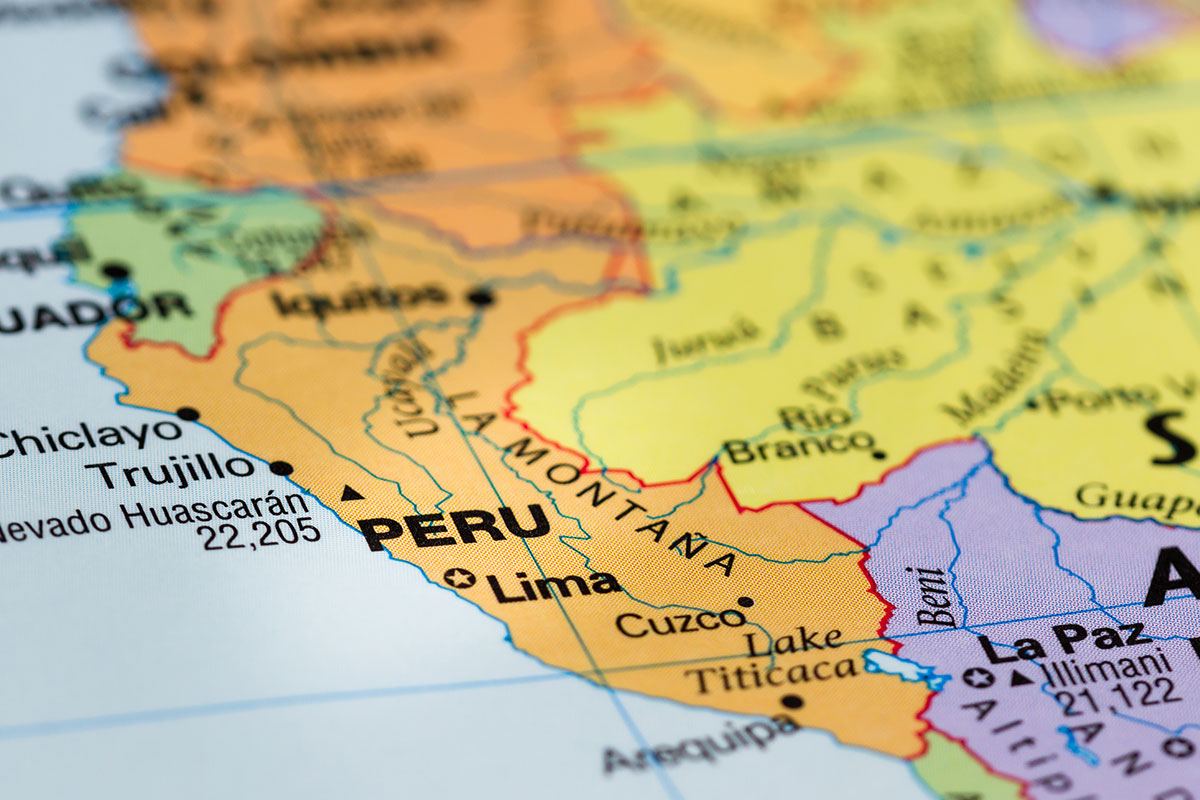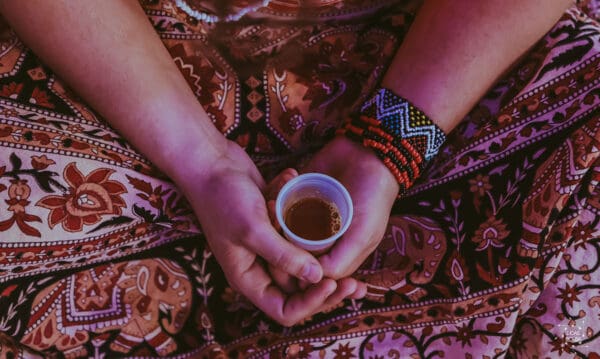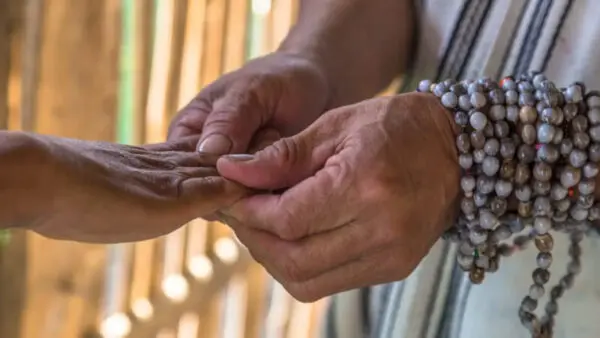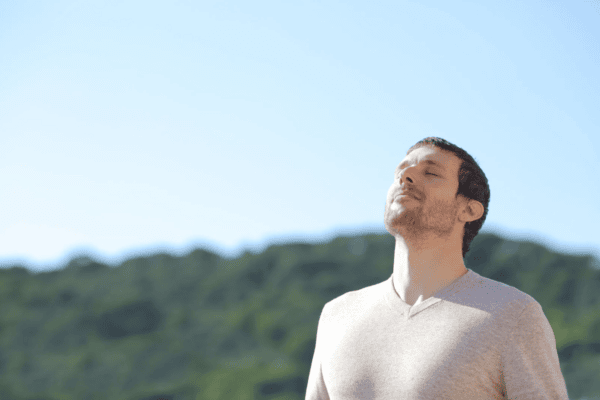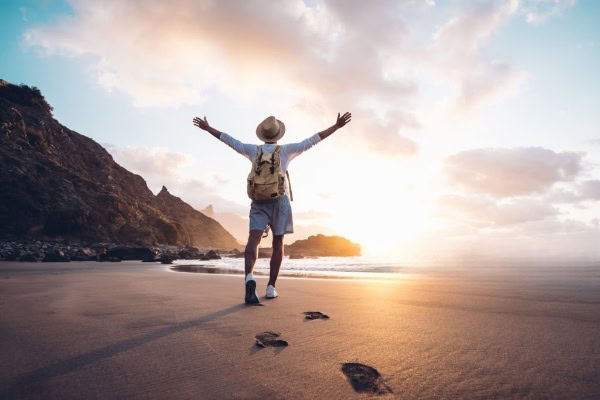Ayahuasca is a brew that combines the Banisteriopsis Caapi vine and leaves from the Psychotria Viridis plant; the leaves activate the component in the vine that produces psychedelic effects. It has been an integral part of spiritual life for many indigenous Amazonian cultures in South America for centuries.
Growing awareness of ayahuasca and the transformational healing for which it is known has increased the curiosity of those seeking alternatives to western treatments for mental health conditions and promoting well-being. However, psychedelic substances are not currently legal in the majority of the world.
Here is a basic overview of where ayahuasca is legal, as well as reasons for the tight restrictions placed on this mystical plant medicine.
Is ayahuasca legal in the US?
Ayahuasca is a Schedule I drug in the United States, among other highly controlled substances with the most severe penalties for transport, purchase, sale, or possession. Offenders can face up to 20 years of incarceration depending on the circumstances of a violation related to ayahuasca. However, exceptions are made for its use in legitimate religious ceremonies as outlined in the Religious Freedom and Restoration Acts.
Santo Daime and União do Vegetal are churches operating in the United States that have been granted religious exemptions to use ayahuasca in ceremonies. Those who consume the medicine, even in the company of a healer, must be members of the church in order for their participation to be legal.
There are others such as the members of the Soul Quest Church of Mother Earth who hold ayahuasca sacred as a teacher plant with properties that can facilitate greater connection to the divine in nature.
It should be noted that churches that do not have cultural ties to South America that employ ayahuasca in ceremonial practices typically align their organization with Native American systems of belief. However, there are concerns about cultural appropriation in these cases.
This is due to the fact that the National Council of Native American Churches (NCNAC) holds religious exemption for sacramental peyote and has no association or history of cultural ties to ayahuasca. The NCNAC has publicly denounced organizations that seek religious protection for the use of ayahuasca, as it is not a part of Native American theology or practice whatsoever.
Certain cities like Oakland, CA have decriminalized ayahuasca, meaning possession and use are unlikely to result in arrest or criminal charges. Importation, cultivation, and sale are still illegal and may result in arrest and prosecution.
Ayahuasca legality in South America
Ayahuasca is generally legal in countries with indigenous cultural ties to the medicine and where the vine grows in certain regions, particularly Peru, Bolivia, and Colombia. Most of the ayahuasca retreat centers available to tourists are located in the Amazon basin.
Brazil and Ecuador also honor the tradition of the ayahuasca ceremony and have churches that adhere to the shamanistic belief system. This practice has been fully legal in Brazil since 1992, where laws also permit growing the vine and making the brew.
The legality of ayahuasca in Chile is unclear. DMT is a controlled substance, which may indicate similar policies applied to ayahuasca. However, no specific laws are outlined.
Laws concerning ayahuasca in Costa Rica are notoriously unclear, however; there are a number of retreat centers located throughout the country that are considered safe and reputable with plenty of reviews on travel sites and forums. It seems that the lack of specific policies is the very means by which these centers are allowed to operate.
Ayahuasca legality around the world
In 2001, Portugal decriminalized all previously illegal substances, including ayahuasca. While a person faces no criminal charges for possessing or taking the medicine, importation, cultivation, and the sale of ayahuasca remain illegal.
Ayahuasca is a controlled substance in Spain, and is allowed to be used under certain circumstances, such as for research or approved medicinal products. It is otherwise illegal to sell, transport, or possess.
In Romania, ayahuasca is only legal for certain approved scientific or medical studies in hospitals and clinics. All other uses are illegal.
Other countries have unspecific policies surrounding ayahuasca. Italy officially recognized ayahuasca as non-narcotic, but the lack of laws outlining the extent of legality makes it difficult to discern who can use the medicine and how it can be used.
DMT is specifically illegal in the UK, with no exceptions made for religious use. Ireland denied a request for a religious exemption to import ayahuasca by a member of União do Vegetal in 2014.
Ayahuasca ceremonies were common in The Netherlands until 2019 when it was made illegal due to the serious risks to public health that the supreme court deemed too dangerous to make exceptions for religious freedoms.
Switzerland allows ayahuasca ceremonies for religious purposes, and the União do Vegetal operating in the State of Geneva has been given permission to legally import the materials for this religious sacrament.
Why is ayahuasca illegal in most countries?
Medical concerns
Ayahuasca contains N, N-dimethyltryptamine (DMT), which is the psychoactive component activated by monoamine oxidase inhibitors (MAOIs) in the brew. It is responsible for the psychedelic effects ayahuasca produces.
DMT can induce visions, hallucinations, and alterations in perception. Recreational use without discretion, proper guidance, and support is strongly discouraged, as ayahuasca can interact with a variety of foods and medications or cause serious complications for certain health conditions.
Ayahuasca has demonstrated positive behavioral and antidepressant effects in studies that have observed its influence in promoting neuroplasticity and neurogenesis in vitro. However, according to the standards of western medicine, there has yet to be sufficiently conclusive proof of its safety and efficacy as a therapy.
Most substances with psychoactive properties are illegal and heavily controlled in the United States, as well as other Western countries, with restrictive policies toward drugs that are not considered to have a known medical purpose. While this could change, it would take time and additional research.
Additionally, ayahuasca can present serious health complications when used without discretion. Adverse reactions can occur with certain foods and medications, as well as existing physical and mental health conditions. The medicine should be taken under the care and guidance of a trained healer, and only after comprehensive health screening and preparation measures.
Ayahuasca must therefore be regulated in some ways for the sake of public safety, and decriminalization with specific requirements for use is likely the closest ayahuasca will ever come to being legal.
Misinformation and stigma
Due to misconceptions about what psychedelics are, there is a great deal of misinformation about their effects and risks. Additionally, there is a pervasive lack of understanding and empathy in the west for indigenous cultures in general, including the religious and spiritual values that originated in the Amazonian basin.
Fear and opposition of psychedelics became most prevalent around the 1960s when the American counterculture movement openly advocated for the benefits of these substances while challenging the ideologies and social expectations that previous generations valued. Sensationalist critics made baseless claims that psychedelics caused permanent insanity, senseless defiance, and violence.
Closing thoughts
Should ayahuasca be made legal? The answer is complicated.
Those who seek to import, prepare, and use the brew for legitimate purposes agree that legalization or decriminalization should still be regulated, and for good reasons. Even fervent advocates agree that ayahuasca is only safe to use under the guidance of someone who is trained in the tradition, and that preparation, care during the journey, and post-ceremonial integration are all critical to the safety and benefit of the medicine.
Additionally, widespread legality or decriminalization would likely deepen current concerns about the sustainability of the B. Caapi vine, which has been heavily harvested due to increasing demand in recent years. Members of the community worry that improper harvesting practices threaten the vine’s ability to regenerate. The controlled status of ayahuasca in most places around the world does provide the benefit of some protection for the vine by limiting its export.
As long as the use of ayahuasca is regulated for safety purposes, sacred reciprocity is mandated to ensure the well-being of indigenous Amazonian cultures, and the sustainability of the plants is protected, ayahuasca could be ethically decriminalized.
Aside from the few religious exemptions and a select few cities that have decriminalized ayahuasca with limitations, it is currently unclear as to if, how, or when the federal government and most jurisdictions will reconsider the legal status.
